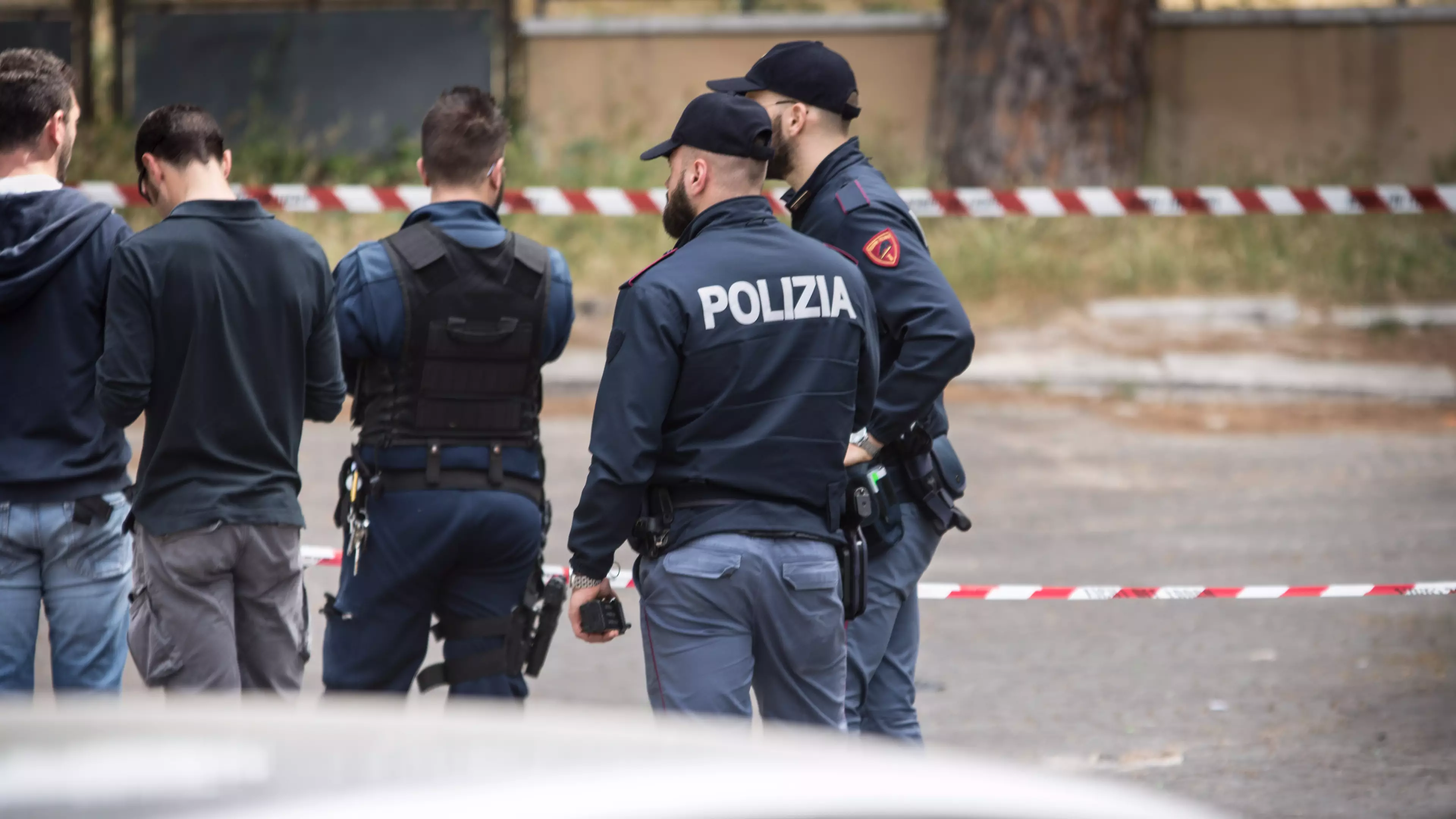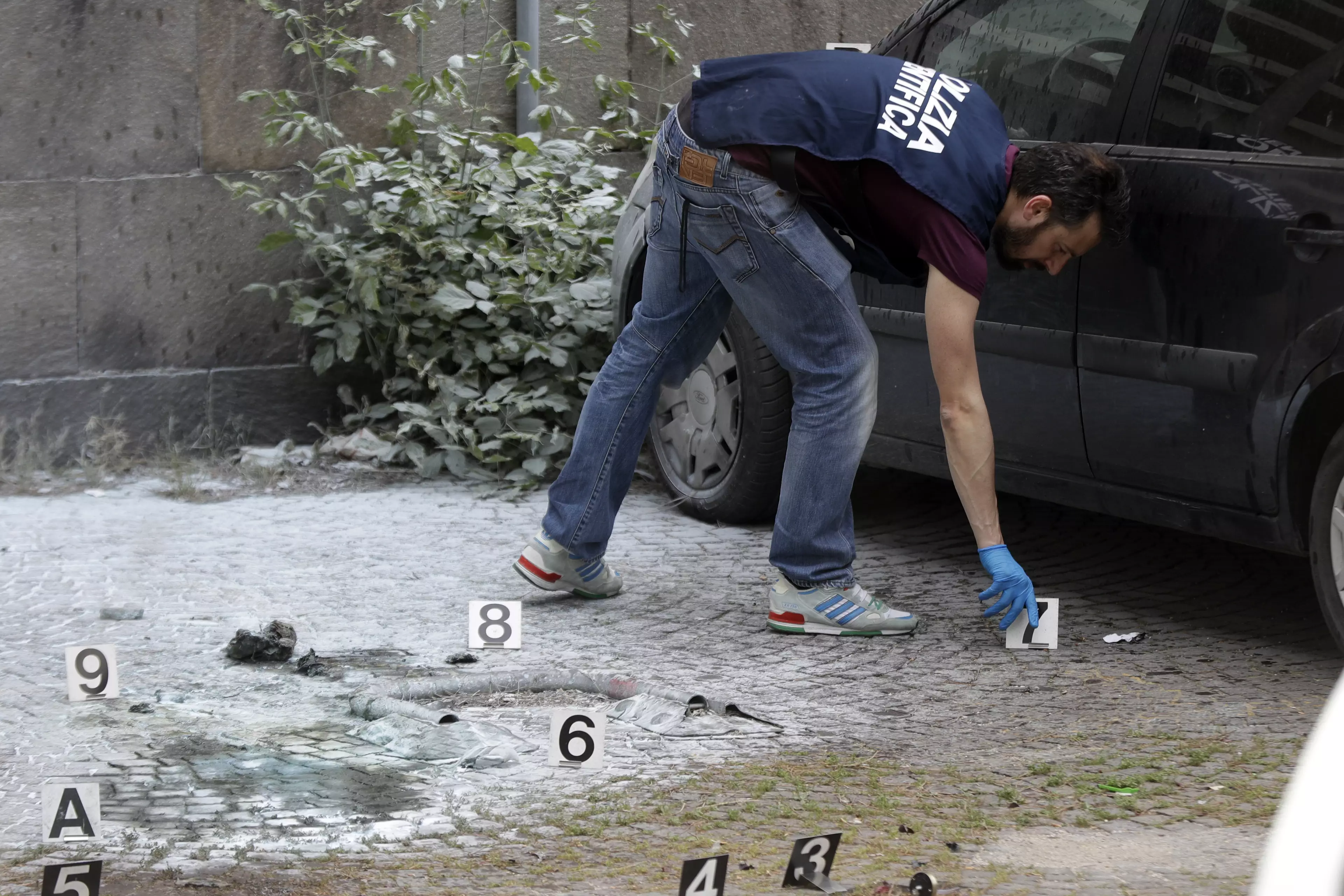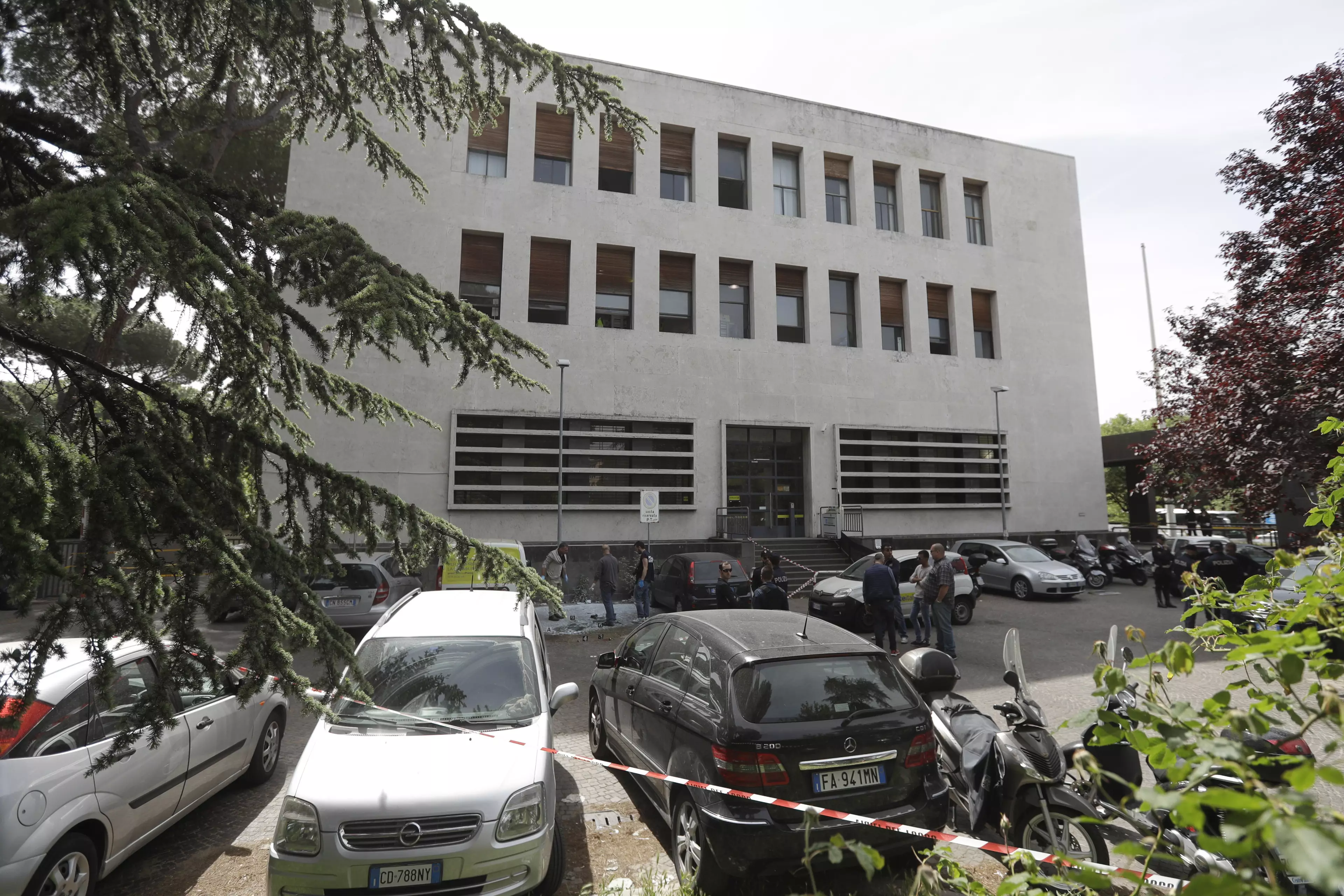
Police in the Italian capital, Rome, are carrying out an investigation after a bomb reportedly exploded outside a post office in the centre of the city, reports the Independent.
Italy's emergency services informed RAI (Radiotelevisione Italiana, the national broadcaster) that they were managing the situation, which was believed to have involved a double explosion and damage to one car. No injuries have been reported.
The broadcaster reported that two devices had been found near cars parked in the area. Police were investigating all possibles causes, including the suggestion that the device may have been a letter bomb or another kind of improvised device.

A plain clothes policeman inspects the site of the explosion, Credit: PA
Advert
Scenes caught on camera showed both police and fire crews at the scene and the street where the post office explosion occurred partially cordoned off. Traffic was left unaffected, though an area near the Circus Maximus racetrack has been closed for security reasons.
The newspaper Il Giornale reported that police believe the devices may have been crude, homemade bombs using flammable liquid, which were placed between two vehicles in a car park in Via Marmorata.
While businesses and locals were evacuated in the Aventino district, police denied any immediate links to terrorism, saying that an 'act of protest' is believed to have been the motive for the attack.
As in much of the rest of Europe, terrorist attacks are extremely rare in Italy. In the years following the Second World War, numerous attacks were carried out by various groups, including communists seeking to overthrow the state, the extreme right (including the groups Ordine Nuovo, Avanguardia Nazionale or Fronte Nazionale), anarchists and, most notably, organised criminals including the various factions of the Mafia.
Advert
While attacks were common between groups in the post-war era, commonly referred to as Italy's 'Years of Lead', subsequent years have seen a fall in attacks, though in 2004 a series of letter bombs were delivered to high ranking EU and domestic officials.

The site of the explosion, Credit: PA
The street where the explosions took place, Via Marmorata, links the River Tiber with the Pyramid of Cestius in central Rome. As police suspect the attack to have been an 'act of protest', suspicions immediately fall upon anarchist groups which have carried out similar attacks in the past, like those above.
Advert
Security in Rome has been increased in recent times due to terrorist attacks in major European countries, though to date no Isis-linked terror attack has been successfully carried out, even though the Italian capital (and the Vatican, the Catholic city-state and home of the Pope) have reportedly been targeted symbolically in Isis-related propaganda.
Meanwhile, letter bombs have been found in Paris, Germany and Greece, all sent by a Greek anarchist group and, like the 2004 attacks in Italy, directed to officials, in this case EU ministers and people in financial institutions.
With Italy's economy still reeling from the effects of the financial crisis, several political groups (both legal and illegal) have voiced opposition to political parties through protest, splinter political groups and, in extreme cases, criminal acts.
Former Italian Prime Minister Matteo Renzi resigned last year, only to re-elected as the leader of the ruling Democratic Party, though the country remains divided on various social and political lines.
Advert
Sources: Independent, Evening Standard
Words: Ronan O'Shea